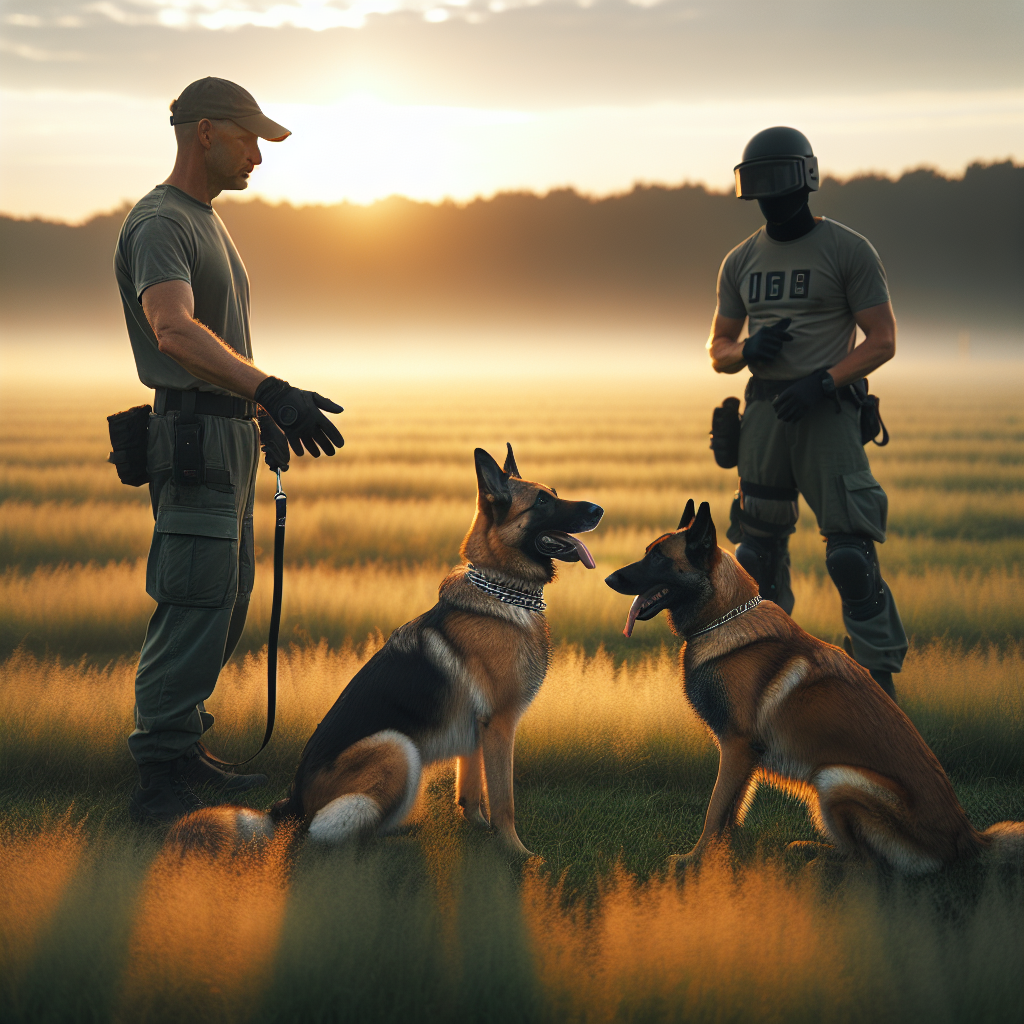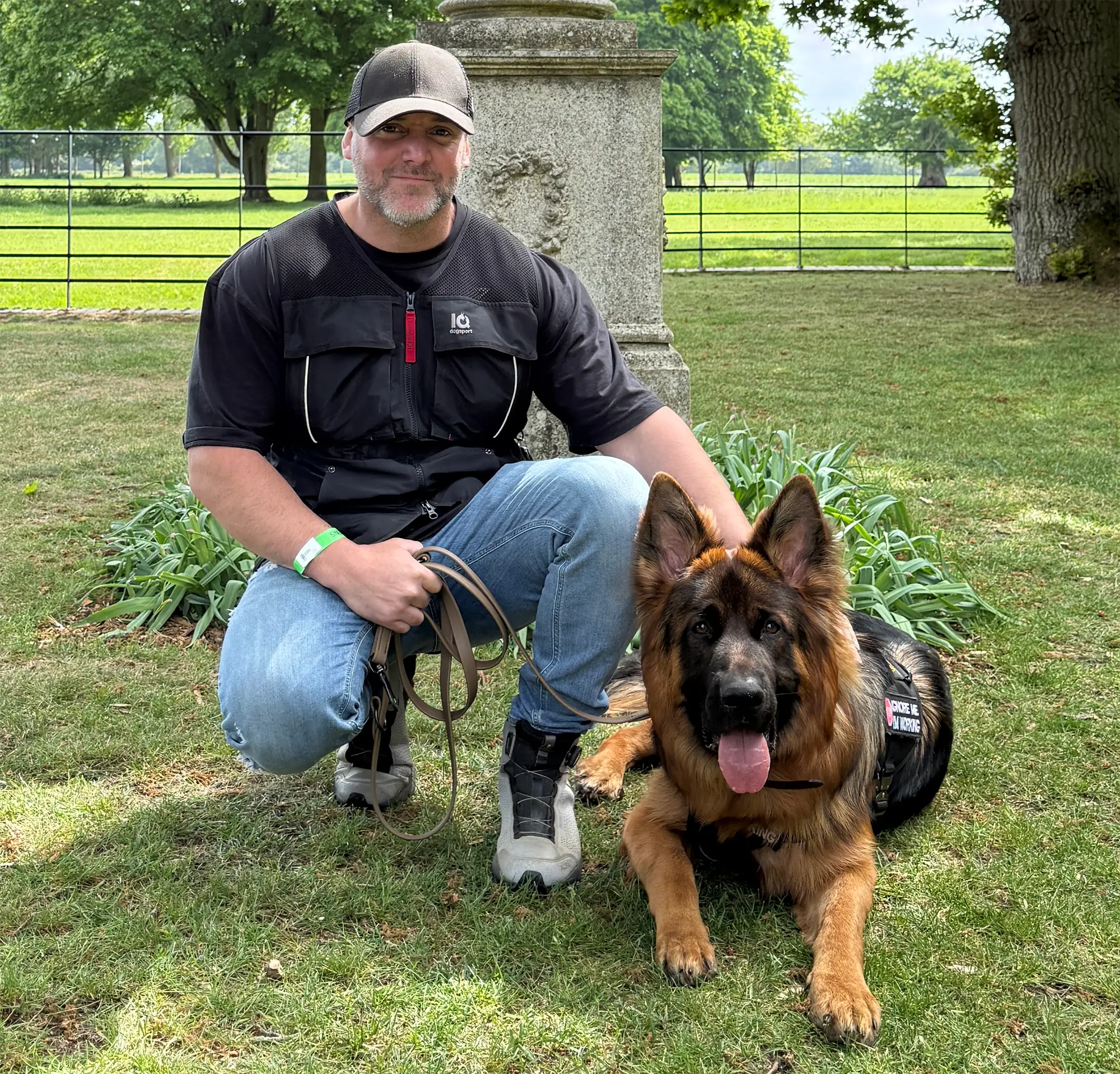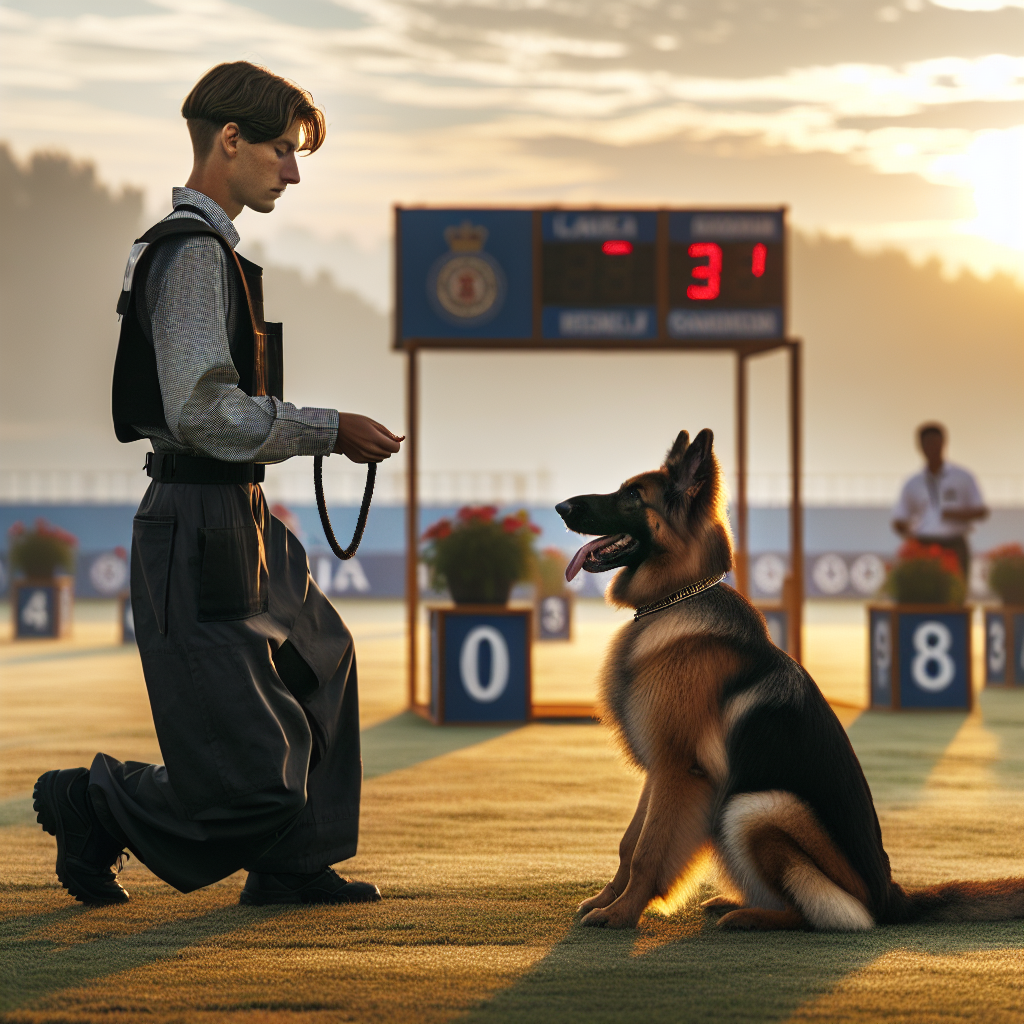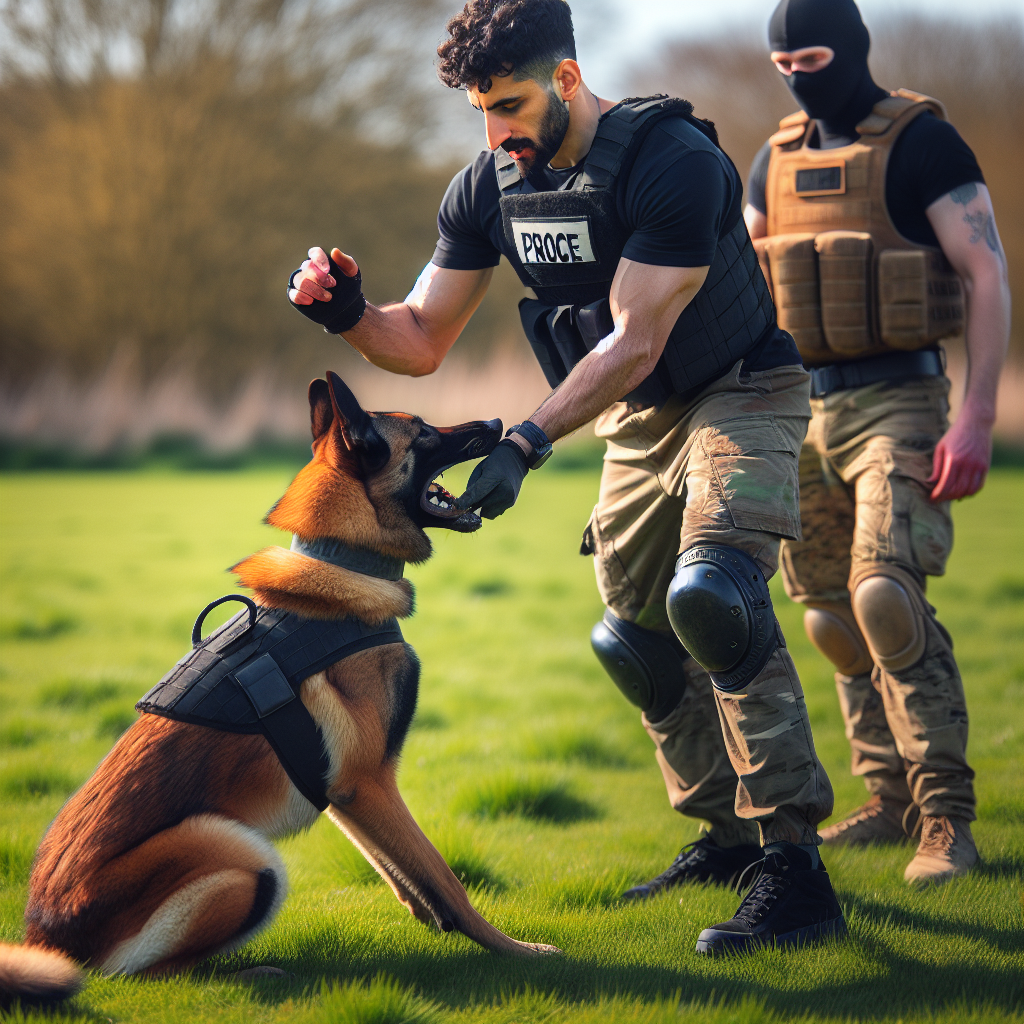Best Dogs for IGP

Best Dogs for IGP
When people ask about the best dogs for IGP, they want clarity. They want to know which breeds, bloodlines, and traits will support a confident, reliable performance on the field and in real life. At Smart Dog Training, we answer that question with structure and proof. Our Smart Method has built successful IGP teams across the UK, guided by a certified Smart Master Dog Trainer from day one. If you want a dog that can thrive from tracking to obedience to protection, the plan begins before you even bring your puppy home.
What Is IGP and Why Breed Choice Matters
IGP is a sport that tests a dog across three phases. Tracking shows independent problem solving and deep nose work. Obedience shows engagement, precision, and stability under pressure. Protection shows courage, control, and clear drives that turn on and off. The best dogs for IGP have the nerve, structure, and mindset to work with joy while staying safe and accountable.
Choice matters because not every dog enjoys this job. The best dogs for IGP combine natural drives with social stability and a body built for sustainable work. With Smart Dog Training, you do not guess. You follow a system that measures and grows what the dog has. Every step is planned by the Smart Method and delivered by a Smart Master Dog Trainer.
The Smart Method Approach to IGP Foundations
The Smart Method is our proprietary framework for building real world performance. It balances clarity, pressure and release, motivation, progression, and trust. This balance is what sets the best dogs for IGP apart once training starts to get real. We map each phase to the dog and handler so growth is steady and stress stays low.
- Clarity teaches markers and commands so the dog always knows what is right
- Pressure and release guides choices and builds responsibility without conflict
- Motivation builds desire so the dog wants to work and loves the job
- Progression layers distraction, duration, and difficulty until skills are reliable anywhere
- Trust strengthens the bond between dog and handler, which shows in courage and control on the field
When families and competitors ask about the best dogs for IGP, we match more than a breed name. We match the full picture. That is how Smart Dog Training prepares dogs that hold it together when it matters.
Key Traits That Define the Best Dogs for IGP
IGP is more than speed and power. The best dogs for IGP show a cluster of traits that make training predictable and enjoyable:
- Solid nerves that stay steady near strange surfaces, noise, and pressure
- Balanced drives for food, toys, and interaction that switch on and off
- High engagement with the handler, not just the environment
- Clear recovery after stress so the dog bounces back fast
- Strong hunt and search for tracking that is methodical and patient
- Clean, full grips and the genetic desire to carry and possess
- Social stability with humans and dogs so life away from the field is calm
These qualities make up the best dogs for IGP because they support consistent learning and safe performance. Smart Dog Training screens for these traits before training begins, then builds them with the Smart Method.
Temperament Testing That Predicts Success
Guesswork leads to frustration. Our process evaluates temperament in a way that gives clear answers. When we assess the best dogs for IGP, we look for:
- Neutrality in new places and around novel items
- Interest in the handler and a desire to problem solve together
- Possession that is strong but controllable
- Willingness to work for both food and toys
- Appropriate suspicion that stays within clear limits
Smart Dog Training uses structured games to bring these traits to the surface. A Smart Master Dog Trainer will guide you through each test and explain what it means for IGP tracking, obedience, and protection.
Working Lines and Show Lines Explained
People often compare working lines with show lines when they search for the best dogs for IGP. The term explains the breeding focus. Working lines are selected for performance, drives, and nerve. Show lines are often selected for appearance. While individual dogs can shine, families who want predictable results should focus on proven working lines that match IGP goals. Smart Dog Training helps you read pedigrees, ask the right questions, and avoid common traps.
The Top Breeds for IGP by Role
The best dogs for IGP usually come from a small group of working breeds. Each has strengths. Each needs the right handler and plan. Smart Dog Training will help you match the dog to your goals and lifestyle.
German Shepherd Dog
The German Shepherd remains a classic choice among the best dogs for IGP. A well bred working line shepherd offers balance. You get strong tracking, expressive obedience, and honest protection. Structure matters. Look for a correct back, clean movement, and strong feet. With the Smart Method, we build clarity early so a young shepherd learns to channel drive without conflict.
Belgian Malinois
The Malinois is electric and forward. Many of the best dogs for IGP today are Malinois due to their speed, power, and resilience. They need structure from the start so the dog stays with the handler and does not self employ. Smart Dog Training develops focus games, clear markers, and fair pressure and release so the dog is fast and precise without leaking energy.
Dutch Shepherd
Dutch Shepherds bring grit and a serious work ethic. The best dogs for IGP in this breed show strong hunt, firm grips, and reliable recovery. They can be intense, so our plan layers obedience early and keeps motivation high. We reward the right picture and teach the dog how to switch off. That is a core piece of the Smart Method.
Rottweiler
Rottweilers can be thoughtful and powerful. The best dogs for IGP in this breed have clean drives and solid nerve. They mature later than some breeds, so Smart Dog Training uses progression that respects growth. We build patience in tracking, expressive obedience, and controlled power in protection.
Dobermann
Modern working line Dobermanns can be sharp and stylish. The best dogs for IGP with this breed combine athleticism with measured intensity. Clarity and trust are key. We give the dog a clear job, reinforce calm between reps, and prevent rehearsals of over arousal.
Giant Schnauzer
Giant Schnauzers bring strength and presence. The best dogs for IGP in this breed do well when training is fair and consistent. We set up simple wins and build confidence through repetition. With Smart Dog Training, Giants learn to enjoy the work without bracing against the handler.
Boxer
Some Boxers have the heart to compete and can be among the best dogs for IGP with the right lines and preparation. They benefit from short, fun sessions and firm clarity on rules. We build grips, teach patience, and use high value play to keep them engaged.
Size, Gender, and Age Considerations
When choosing the best dogs for IGP, you should consider size, gender, and age. Size affects impact and stamina. Larger dogs can be powerful but may tire faster. Gender can influence maturity rates and focus. Many males bring presence while many females offer consistent clarity and work ethic. Age shapes the training plan. Puppies need micro sessions. Adolescents need structure that guides choices. Adults need proofing that respects habits they already have.
Smart Dog Training maps each stage to the Smart Method. That is how we turn promising prospects into the best dogs for IGP over time.
Health and Structure That Support IGP Performance
Sound structure and clear health status are non negotiable for the best dogs for IGP. You want clean hips and elbows, healthy spine, solid feet, and a strong heart. Look at movement. The dog should drive from behind and carry weight softly through the front. Avoid extremes. Balanced structure keeps the dog safe in jumping, tracking, and protection.
We guide owners through vet checks and fitness plans. Conditioning is part of the Smart Method progression. We build core strength, flexibility, and endurance so the best dogs for IGP stay healthy and enjoy the journey.
Matching Handler Personality to Dog Type
There is no single best dog for all people. The best dogs for IGP are the ones that match the handler. If you are calm and steady, a thoughtful dog can thrive. If you enjoy fast, high intensity sessions, a more forward dog may suit you. Smart Dog Training helps you find the balance. We assess your handling style, your schedule, and your goals. Then we pair you with a dog that makes success likely and fun.
How to Pick a Puppy for IGP
Choosing a puppy is exciting. It is also a decision that shapes years of training. To find the best dogs for IGP at this stage, we look for:
- Curiosity without reckless behaviour
- Strong food interest and a desire to chase a toy
- Willingness to engage with the handler in a new place
- Stable recovery after a mild startle
- Calm possession of an item with the ability to carry
Smart Dog Training sets up simple, fair tests. We never overwhelm the puppy. We read what is there and build the plan from the results. This is how families end up with the best dogs for IGP that also live well at home.
Evaluating Adolescent or Adult Dogs
Not everyone starts with a young puppy. Many great teams begin with adolescent or adult dogs. Some of the best dogs for IGP arrive at twelve to eighteen months of age with strong raw material. We test hunt, grips, recovery, and handler focus. We also assess any habits that need to change. Then we begin the Smart Method, building clarity and motivation while adding accountability at the right pace.
Early Socialisation and Drive Building the Smart Way
The best dogs for IGP are also safe and stable in public. Socialisation is not free for all. It is guided exposure with calm behaviour. We teach neutrality around people and dogs while protecting the dog from bad experiences. At the same time, we build drives in short sessions. Food and toy play are shaped with clear markers. Grip games are clean and fun. Tracking begins as a quiet hunt that grows into methodical work. This is how Smart Dog Training turns talent into the best dogs for IGP that perform and live well.
Common Mistakes When Choosing IGP Dogs
It is easy to be drawn to names or trends. To find the best dogs for IGP, avoid these common errors:
- Picking by breed label without testing the actual dog
- Confusing frantic energy with true working drive
- Overlooking structure and health
- Starting protection before foundation engagement is solid
- Allowing poor grips to repeat
- Skipping neutral exposure in daily life
Smart Dog Training prevents these mistakes with a step by step plan. We put the long term picture first so your dog grows into one of the best dogs for IGP with confidence and consistency.
Ready to turn your dog’s behaviour around? Book a Free Assessment and connect with a certified Smart Master Dog Trainer - available across the UK.
How Smart Dog Training Builds Reliable IGP Skills
It is not enough to own one of the best dogs for IGP. You need a training pathway that turns potential into proof. Our method creates reliable behaviour across all phases.
Tracking: We grow hunt, focus, and patience. We reward methodical scenting and teach the dog to solve problems without stress. Obedience: We build attitude first. The dog learns that precision is the path to reward. Protection: We develop clean grips and confident approach, then add control with fair pressure and release. Every step is layered so the picture is the same from the yard to the trial field.
Breed Profiles and Handler Fit
- German Shepherd Dog: Great for handlers who want balance across phases and a dog that learns patterns fast
- Belgian Malinois: Suits handlers who enjoy speed and structure and can be precise and calm in sessions
- Dutch Shepherd: For handlers who want grit and resilience and are ready to invest in early control
- Rottweiler: Fits handlers who value power with thought and are patient with later maturation
- Dobermann: Works well for handlers who like athletic style and can maintain clear boundaries
- Giant Schnauzer: For handlers who can be consistent and fair and enjoy a strong partner
- Boxer: Matches handlers who want upbeat sessions and are happy to shape with frequent rewards
Smart Dog Training will help you choose among the best dogs for IGP by matching this profile to your reality at home.
Proofing for Real Life and Trial Day
IGP is a sport, but life still comes first. The best dogs for IGP can switch from the field to the family. We proof obedience in parks, near traffic, and around other dogs. We teach off switch routines. We manage arousal after work with calm patterns. On trial day, we present the same pictures the dog knows from training. This is progression at work, and it is the core of our results across the UK.
Timeframe and Expectations
Even the best dogs for IGP need time. Puppies spend months building foundations. Adolescents need slow proofing. Adults need habits reshaped. With weekly coaching and daily micro sessions, most teams see steady improvement in a few months and full programmes across a year. Smart Dog Training tracks progress against clear milestones so you always know what comes next.
How to Get Started With Smart
If you want help selecting or developing the best dogs for IGP, start with a consultation. We will assess your goals, evaluate your dog or puppy, and propose a mapped plan. You can train in your home, join structured groups, or follow a tailored behaviour programme that links into our advanced IGP pathway. All programmes apply the Smart Method so you get consistent results from day one.
FAQs
Which breed is the most reliable for IGP
German Shepherds and Belgian Malinois are the most common among the best dogs for IGP due to consistent working lines. The right choice depends on your handling style and lifestyle. Smart Dog Training will help you match the dog to your goals.
Can a family dog also be an IGP dog
Yes. The best dogs for IGP can be stable family dogs when training focuses on clarity and calm routines at home. Smart Dog Training teaches off switch skills and neutral exposure so life stays peaceful.
What age should I start
Start as soon as you bring the puppy home. We build foundations through play and short sessions. Many of the best dogs for IGP begin with simple tracking games and engagement before six months.
Do I need special equipment
You need basic tools like a flat collar, long line, rewards, and a safe area to train. Smart Dog Training will guide you on what to add and when so your dog grows into one of the best dogs for IGP without confusion.
How long before I see progress
With consistent work you see engagement improvements within weeks. Grip quality, tracking performance, and obedience precision develop over months. The best dogs for IGP are built through steady progression, not shortcuts.
Can I compete with a rescue or older dog
Yes, if the dog has the right temperament and health. Smart Dog Training assesses the dog and maps a plan. Many of the best dogs for IGP start later and still succeed with clear guidance.
Conclusion and Next Steps
The best dogs for IGP are defined by nerve, drives, structure, and a handler focused mind. When you pair the right dog with the Smart Method, you get calm power that holds up in tracking, obedience, and protection. Smart Dog Training will help you select, assess, and train your partner so you can enjoy the journey and the results.
Your dog deserves training that truly works. With certified Smart Master Dog Trainers (SMDTs) nationwide, you'll get proven results backed by the UK's most trusted dog training network. Find a Trainer Near You



